Religion and American Public Life: The Calling of a Public Intellectual
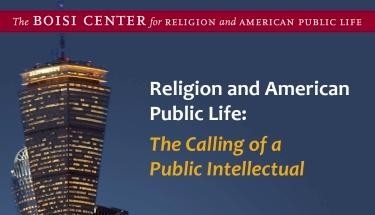
Conference Schedule
Thursday, April 14, 2016
8:45 a.m.: Welcome
William P. Leahy, S.J., president, Boston College
Erik Owens, associate director of the Boisi Center and associate professor of the practice in theology and international studies, Boston College
9:00 - 10:30 a.m.: Panel 1: Return of the Study of Religion in Law and Political Science
Ira Katznelson, Ruggles Professor of Political Science and History, Columbia University
Sanford Levinson, W. St. John Garwood and W. St. John Garwood, Jr. Centennial Chair in Law; Professor of Government, University of Texas Law School at Austin
Richard J. Mouw, Emeritus President and Professor of Faith and Public Life, Fuller Theological Seminary
Susan Meld Shell (moderator), professor of political science, Boston College
10:30 - 10:45 a.m.: Coffee
10:45 a.m. - 12:15 p.m.: Panel 2: Public Scholarship Today
William A. Galston, Ezra K. Zilkha Chair in Governance Studies and Senior Fellow at the Brookings Institution
Susan Jacoby, independent scholar and author of Strange Gods: A Secular History of Conversion
Randall Kennedy, Michael R. Klein Professor of Law, Harvard Law School
Joseph Quinn (moderator), professor of economics, Boston College
12:15 - 12:45 p.m.: Lunch
12:45 - 2:00 p.m.: Keynote Conversation: The Calling of a Public Intellectual
Howard Gardner, John H. and Elisabeth A. Hobbs Professor of Cognition and Education, Harvard Graduate School of Education
Alan Wolfe, founding director of the Boisi Center for Religion and American Public Life and professor of political science, Boston College
David Quigley (introduction), provost and dean of faculties and professor of history, Boston College
2:15 - 4:30 p.m.: Reception at the Boisi Center
Speaker Bio
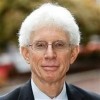
William A. Galston holds the Ezra K. Zilkha Chair in the Brookings Institution’s Governance Studies Program, where he serves as a senior fellow. He is a political theorist who both studies and participates in American politics and domestic policy. His expertise includes American political thought, institutions and processes; contemporary political and social philosophy; history of political thought; and U.S. domestic policy. Galston was Deputy Assistant to the President for Domestic Policy during the first Clinton Administration and Executive Director of the National Commission on Civic Renewal, which was chaired by Sam Nunn and William Bennett. His books include Public Matters: Essays on Politics, Policy and Religion (2005), The Practice of Liberal Pluralism (2004) and Liberal Pluralism: The Implications of Value Pluralism for Political Theory and Practice (2002). A winner of the American Political Science Association’s Hubert H. Humphrey Award, he was elected a Fellow of the American Academy of Arts and Sciences in 2004. Galston holds a Ph.D. and a M.A. from the University of Chicago and a B.A. from Cornell University.
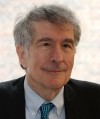
Howard Gardner is the John H. and Elisabeth A. Hobbs Professor of Cognition and Education at the Harvard Graduate School of Education. A recipient of the MacArthur Prize Fellowship, the University of Louisville Grawemeyer Award in Education, the Prince of Asturias Award for Social Sciences and the Brock International Prize in Education, he is a leading thinker of education and human development. He has received honorary degrees from thirty colleges and universities. He has studied and written extensively about intelligence, creativity, leadership and professional ethics, and is senior director of Project Zero and co-founder of the Good Project. For the last several years, he has worked in various capacities with Harvard undergraduates and is now undertaking a study of liberal arts and sciences in the 21st century. Gardner’s books include Good Work (2001), Changing Minds (2004), The Development and Education of the Mind (2005), Multiple Intelligences: New Horizons (2006) and Truth, Beauty, and Goodness Reframed (2011). His latest co-authored book is The App Generation: How Today’s Youth Navigate Identity, Intimacy, and Imagination in a Digital World (2013).
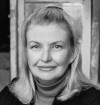
Susan Jacoby is an independent scholar specializing in the history of atheism, secularism and religious liberty. She is the author of eleven books, including her most recent, Strange Gods: A Secular History of Conversion (2016). Her other books include Never Say Die (2011), The Great Agnostic: Robert Ingersoll and American Freethought (2012), The Age of American Unreason (2008), Alger Hiss and the Battle for History (2009) and Freethinkers: A History of American Secularism (2004). Her articles have appeared frequently in the op-ed pages of The New York Times and in forums that include The American Prospect, Dissent and The Daily Beast. She has been the recipient of many grants and awards from the National Endowment for the Humanities and the Guggenheim, Rockefeller and Ford Foundations. In 2001 she was named a fellow of the Dorothy and Lewis B. Cullman Center for Scholars and Writers at the New York Public Library. Jacoby is a member of the honorary boards of the Freedom from Religion Foundation and the Center for Inquiry, a secular think tank. She lives in New York City.
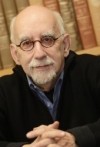
Ira Katznelson has been the Ruggles Professor of Political Science and History at Columbia University since 1994. Since 2012, he has been president of the Social Science Research Council. His book Fear Itself: The New Deal and the Origins of Our Time (2013) has been awarded the Bancroft Prize in History, the Woodrow Wilson Foundation Award in Political Science and the Sidney Hillman Foundation Prize for Book Journalism. Other recent books include Liberal Beginnings with Andreas Kalyvas (2008), When Affirmative Action Was White (2006) and Desolation and Enlightenment (2003). Katznelson has served as president of the American Political Science Association, the Social Science History Association and is a research associate at Cambridge University’s Centre for History and Economics.
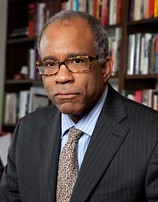
Randall Kennedy is the Michael R. Klein Professor of Law at Harvard Law School where he teaches courses on contracts, criminal law and the regulation of race relations. Born in Columbia, South Carolina, he attended St. Albans School, Princeton University, Oxford University and Yale Law School. He served as a law clerk for Judge J. Skelly Wright of the United States Court of Appeals and for Justice Thurgood Marshall of the United States Supreme Court. He is a member of the bar of the District of Columbia and the Supreme Court of the United States. Awarded the 1998 Robert F. Kennedy Book Award for Race, Crime, and the Law (1997), Kennedy writes for a wide range of scholarly and general interest publications. His most recent books are For Discrimination: Race, Affirmative Action, and the Law (2013), The Persistence of the Color Line: Racial Politics and the Obama Presidency (2011), Sellout: The Politics of Racial Betrayal (2008), Interracial Intimacies: Sex, Marriage, Identity, and Adoption (2003) and Nigger: The Strange Career of a Troublesome Word (2002). A member of the American Law Institute, the American Academy of Arts and Sciences and the American Philosophical Association, Kennedy is also a Charter Trustee of Princeton University.
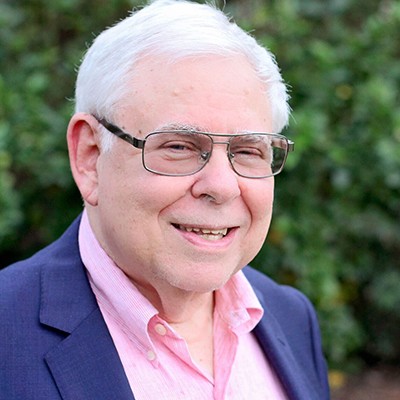
Sanford Levinson holds the W. St. John Garwood and W. St. John Garwood, Jr. Centennial Chair in Law and is a professor in the government department at the University of Texas at Austin Law School. This year he is a visiting professor at the Harvard Law School. He is the author of multiple books, including Constitutional Faith (1988), Our Undemocratic Constitution: Where the Constitution Goes Wrong (and How We the People Can Correct It) (2006), Framed: America's 51 Constitutions and the Crisis of Governance (2012) and An Argument Open to All: Reading the Federalist in the 21st Century (2015). He is also the editor of Torture: A Collection (2004) and the co-editor with Mark Tushnet and Mark Graber of The Oxford Handbook on the United States Constitution (2015). Levinson has also published in a wide variety of professional and popular journals and is a regular contributor to the blog Balkinization. He received the Lifetime Achievement Award from the Law and Courts Section of the American Political Science Association in 2010 and was elected to membership in the American Academy of Arts and Sciences in 2001. Levinson holds a Ph.D. from Harvard University, a J.D. from Stanford University and an A.B. from Duke University.
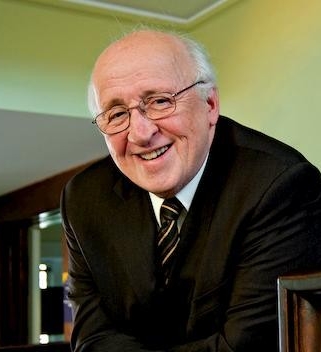
Richard J. Mouw served as president of Fuller Theological Seminary from 1993 through June 2013, and presently serves on the Fuller faculty as Professor of Faith and Public Life. Prior to joining the Fuller faculty in 1985, he taught in the philosophy department at Calvin College. Mouw has also served as a visiting professor at several institutions, including the Free University in Amsterdam. A graduate of Houghton College, Mouw studied at Western Theological Seminary and earned a master’s degree in philosophy at the University of Alberta. His Ph.D. in philosophy is from the University of Chicago. Mouw has served on many editorial boards, including currently Books and Culture. He is the author of twenty books, including The God Who Commands (1990), The Smell of Sawdust (2000), Calvinism in the Las Vegas Airport (2004), Uncommon Decency: Christian Civility in an Uncivil World (1992) and most recently, Called to the Life of the Mind (2014). He has received several awards, including Princeton Theological Seminary’s 2007 Kuyper Prize for Excellence in Reformed Theology and Public Life and the Shalom Award for Interfaith Cooperation from the American Jewish Committee. He recently served as president of the Association of Theological Schools and co-chaired for six years the official Reformed-Catholic Dialogue.
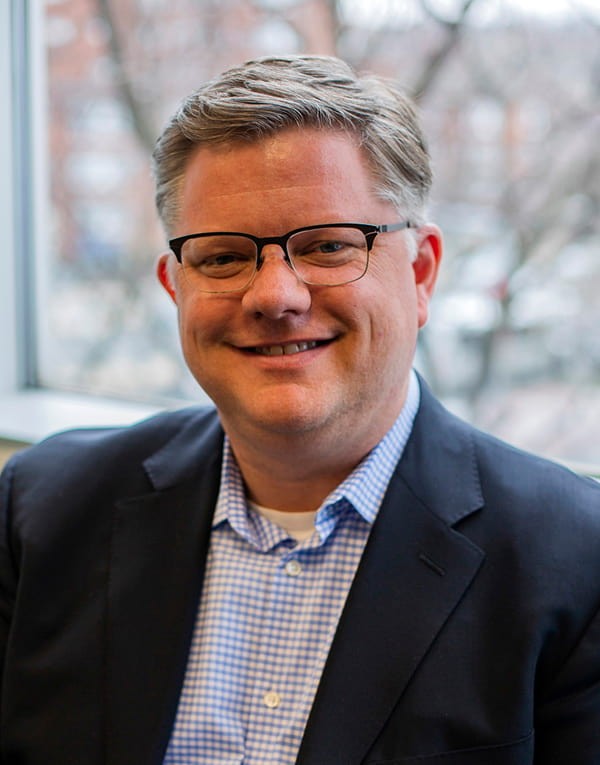
Erik Owens is associate director of the Boisi Center and associate professor of the practice in theology and international studies at Boston College. For the 2015-16 academic year he is a research fellow at the Berkley Center for Religion, Peace & World Affairs at Georgetown University, where he is working on a manuscript about religion, citizenship and civic education. His research explores a variety of intersections between religion and public life, with particular attention to the challenge of fostering the common good of a religiously diverse society. His interdisciplinary scholarship bridges the fields of theological ethics, political philosophy, law, education, international studies and public policy. He is the co-editor of three books: Gambling: Mapping the American Moral Landscape (2009), Religion and the Death Penalty: A Call for Reckoning (2004) and The Sacred and the Sovereign: Religion and International Politics (2003), the last of which was called a "must read" by Foreign Affairs in 2009. At the American Academy of Religion, he serves on the committee on the Public Understanding of Religion, was recently co-chair of the Religion and Politics section, and serves on the steering committee of the "Religion and Public Schools: International Perspectives" group. He received his Ph.D. in religious ethics from the University of Chicago, an M.T.S. from Harvard Divinity School and a B.A. from Duke University. Before joining the Boisi Center, Owens received research fellowships from the Spencer Foundation and the University of Virginia’s Center on Religion and Democracy, taught at the University of Chicago and DePaul University, and worked for the Pew Forum on Religion and Public Life as well as the City of Chicago’s Board of Ethics.
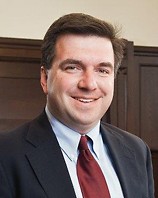
David Quigley is provost and dean of faculties and professor of history at Boston College. He teaches a wide range of courses on the nineteenth-century United States and on political and urban history. His research has explored the history of race and democracy between the American Revolution and Reconstruction in the local political cultures of New York. He is completing a new synthetic project, Last, Best Hope: International Lives of the American Civil War (forthcoming) as well as editing A Companion to American Urban History (2012) and Busing in Boston: A Brief History with Documents (2014). His most recent books include Second Founding: New York City, Reconstruction, and the Making of American Democracy (2004) and Jim Crow New York: A Documentary Reader on Race and Citizenship, 1777-1877, co-authored with David N. Gellman (2003). Quigley received his Ph.D. from New York University in history.
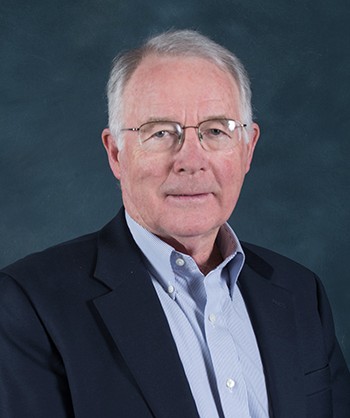
Joseph F. Quinn is a professor of economics and the former dean of the College of Arts and Sciences at Boston College. He has done extensive research on aging issues. His work has covered the economics of aging with emphasis on the economic status of the elderly, Social Security reform, the determinants of the individual retirement decision and trends and patterns of labor force withdrawal among older Americans. Quinn’s work using the Retirement History Survey from the 1970s was summarized in Passing the Torch: The Influence of Economic Incentives on Work and Retirement (1990), co-authored by Richard Burkhauser and Daniel Myers. He is now working with the Health and Retirement Survey, analyzing the nature and timing of retirement since the 1990s. Quinn has served on numerous boards and was co-chair of the technical panel on trends and issues in retirement savings for President Clinton’s 1994-95 Advisory Council on Social Security. He received his B.A. from Amherst College and his Ph.D. in economics from the Massachusetts Institute of Technology.
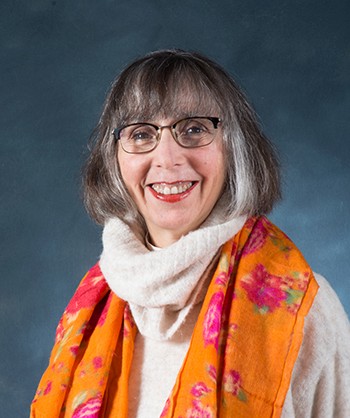
Susan Meld Shell is a professor, and currently chair, of the department of political science at Boston College. She has been a visiting professor at Harvard University, and received fellowships from the National Endowment for the Humanities, the American Council of Learned Societies, the Bradley Foundation, the Deutsche Akademische Austauschdienst and the Radcliffe Institute. She is also the author of Kant and the Limits of Autonomy (2009), The Embodiment of Reason: Kant on Spirit, Generation and Community (1996) and The Rights of Reason: A Study of Kant's Philosophy and Politics (1980). She is the co-editor with Robert Faulkner of America at Risk: Threats to Liberal Self-Government in an Age of Uncertainty (2009). She has also written on Rousseau, German Idealism and in selected areas of public policy.
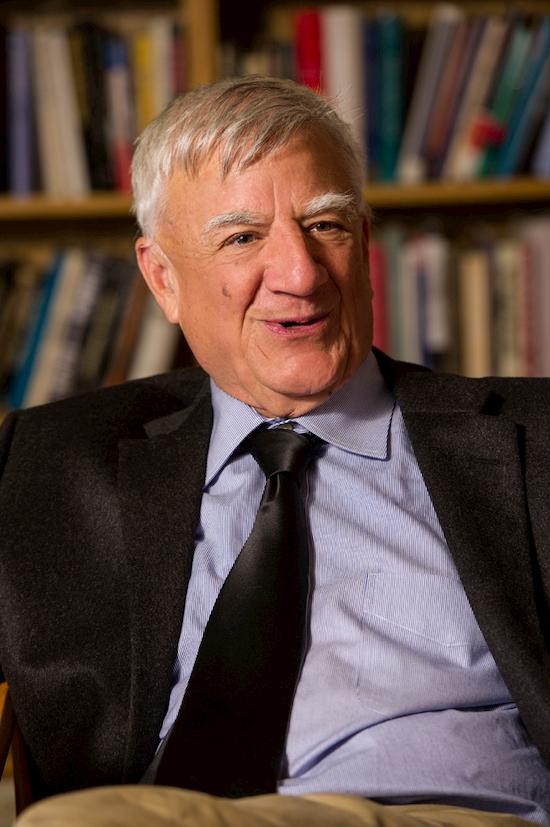
Alan Wolfe is the founding director of the Boisi Center for Religion and American Public Life and professor of political science at Boston College. He is the author and editor of more than twenty books, including, most recently, At Home in Exile: Why Diaspora Is Good for the Jews (2014), Political Evil: What It Is and How to Combat It (2012), The Future of Liberalism (2009), The Transformation of American Religion: How We actually Practice our Faith (2005), Moral Freedom (2003) and One Nation After All (1999). He is a frequent contributor to The New York Times, The Washington Post and The Atlantic, and has delivered lectures across the United States and Europe. He holds a Ph.D. in political science from the University of Pennsylvania and has received honorary degrees from Loyola College in Maryland and St. Joseph’s University in Philadelphia.
Event Photos
Boston College President Fr. William Leahy begins "The Calling of a Public Intellectual" conference with remarks on Alan Wolfe's tenure at the Boisi Center.
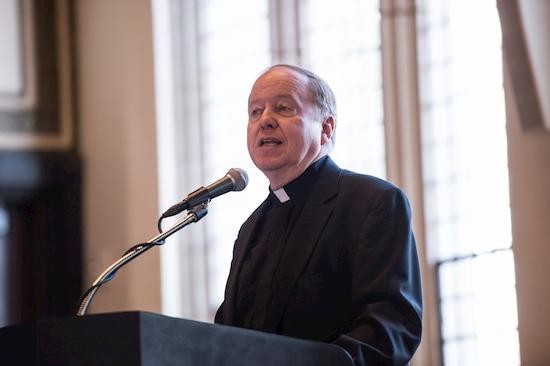
Boston College President Fr. William Leahy begins "The Calling of a Public Intellectual" conference with remarks on Alan Wolfe's tenure at the Boisi Center.
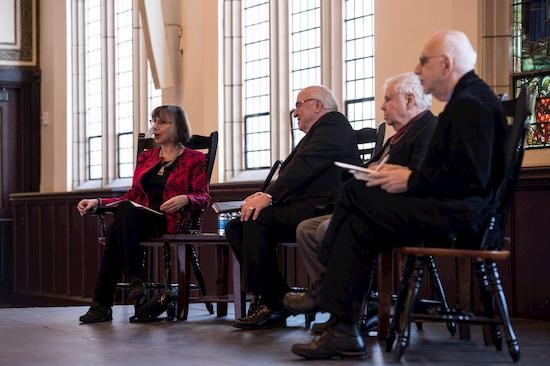
Moderator Susan Meld Shell (left) introduces panelists (from left to right) Richard Mouw, Sanford Levinson and Ira Katznelson to discuss "The Return of the Study of Religion in Law and Political Science."
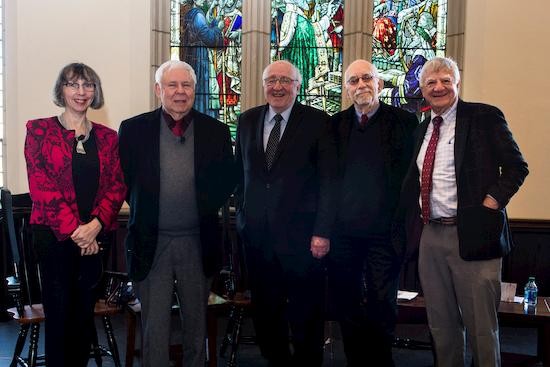
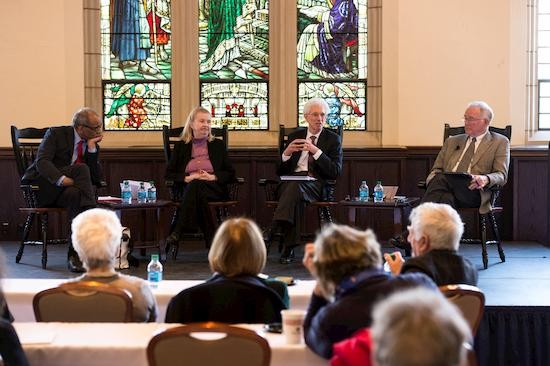
Panelists (from left to right) Randall Kennedy, Susan Jacoby, William A. Galston and moderator Joseph Quinn discuss "Public Scholarship Today."
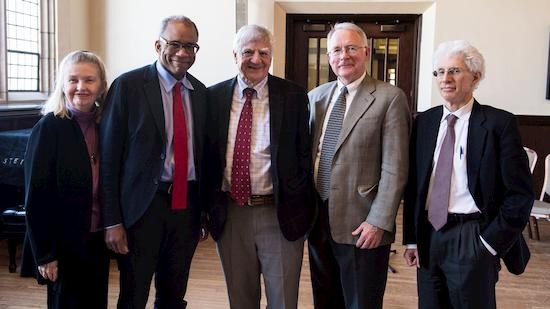
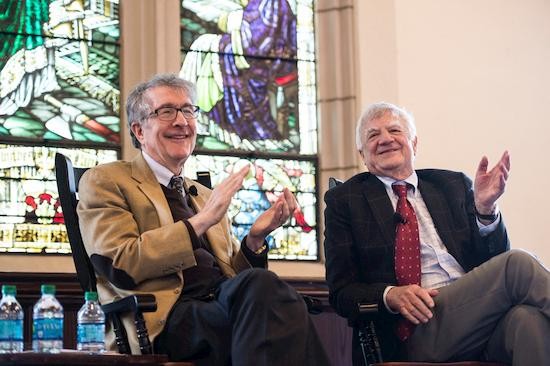
Howard Gardner and Boisi Center Director Alan Wolfe discuss "The Calling of a Public Intellectual."
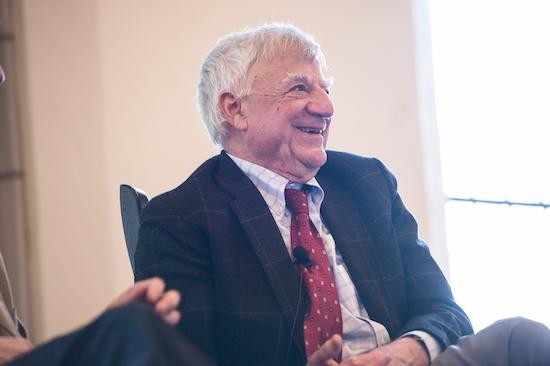
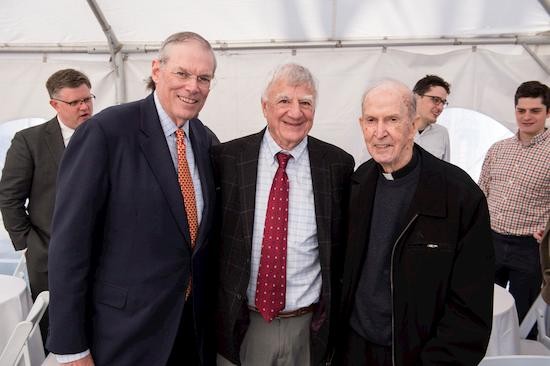
Geoff Boisi, Alan Wolfe and J. Donald Monan, S.J. celebrate Wolfe's retirement at reception following the conference. (Photos by MTS Photography)
Event Recap
On April 14, William P. Leahy, S.J., Boston College university president, praised the work of Alan Wolfe and the Boisi Center since its founding in 1999. Leahy said that the Boisi Center has added to the intellectual discourse at Boston College by taking up major issues of the day and inviting people into dialogue about them.
Later in the day, the Boisi Center’s patron and benefactor Geoffrey T. Boisi also praised Wolfe during the reception in honor of Wolfe’s retirement. Boisi said the Boisi Center was founded for a rigorous examination of the most difficult issues of the day and he expressed his gratitude to Wolfe for his leadership of the Center. He said that Wolfe had caused Boston College to be richer intellectually, spiritually and ethically, as well as enhancing the academic reputation of the school. Boisi expressed his gratitude to Wolfe for the honor he had given the Boisi family name.
The keynote conversation of the conference on the Calling of a Public Intellectual was held between Wolfe and Howard Gardner, the John H. and Elisabeth A. Hobbs Professor of Cognition and Education at the Harvard Graduate School of Education. Gardner asked Wolfe how he might explain his profession to a 10 year-old child. Wolfe answered that he would tell the child that he works with ideas, and that he finds this work important because ideas are in a precarious position today. He argued that much of Western Europe and the U.S. have become fearful, in particular of the stranger and especially of refugees coming from the Middle East. Wolfe said that we must know the difference between slogans and ideas – this is what education teaches.
Gardner and Wolfe also discussed their intellectual influences. Wolfe pointed to Isaiah Berlin, who he said taught a healthy suspicion of a singular and exclusive view of the good life. Robert Nisbet’s work, particularly his belief that sociology is an art form, also influenced him.
Wolfe and Gardner also talked about the things they have always had great interest in, but never written about. Both said they have a great love for music, but hadn’t explored it in writing. Wolfe did point out that his latest book, At Home in Exile: Why Diaspora is Good for the Jews, was the first book he has written on the topic of Judaism and the Jewish people. Wolfe joked that he now realized “the Jewish book” was a stage in the life cycle of secular Jewish intellectuals.
Gardner asked Wolfe about his ability to change his mind throughout his career, and noted that this was rare among intellectuals, especially in the public eye. Wolfe said he took pride in this ability to change his mind. He also discussed his move from the political left to the center over the course of his career. While he is no longer on the far left of American politics, he still believes strongly that economic inequality in the U.S. is the greatest moral problem of our era. Wolfe said that despite his firm convictions, he never wishes to become an ideologue incapable of changing his views.
The conference’s first panel grappled with Return of the Study of Religion in Law and Political Science. Susan Meld Shell, chair of political science at Boston College, moderated the session.
Richard J. Mouw, the Emeritus President and Professor of Faith and Public Life at Fuller Theological Seminary, pointed out that religion was largely absent from the scholarly conversation for many years, but while religions create many problems in the world, they also have rich resources to offer.
Ira Katznelson, the Ruggles Professor of Political Science and History at Columbia University, underscored the profound importance of toleration, both conceptually and in terms of institutional practices.
Sanford Levinson, the W. St. John Garwood and W. St. John Garwood, Jr. Centennial Chair in Law and professor of government at the University of Texas Law School at Austin, wondered whether the Religious Freedom Restoration Act had gone to far. While intended to protect marginal groups, religious claims are now taking priority over public law. Whose concerns should be protected?
In response, Katznelson affirmed that while the secular state should protect religious exercise, religious people must respect the laws produced by a democratic polity society into which they enter. Continuing in this vein, Mouw spoke about the particular concerns and debates within America’s evangelical community over some of the major changes in social policy over the last decade.
During the question and answer time, the speakers discussed the religious make up of the Supreme Court, noting that it does not match the demographics of the American public. Levinson argued that diversity brings perspective to institutions like the Supreme Court, but cautioned against religion influencing the justices in their legal rulings.
Boston College professor of economics, Joseph Quinn, moderated the second panel of the conference, Public Scholarship Today.
The Michael R. Klein Professor of Law at Harvard Law School, Randall Kennedy, spoke about the three characteristics of public scholars that he most admires. They possess versatility, interdisciplinarity and independence. Kennedy appreciates intellectuals whose works are accessible to a broad array of people and praised the intellectuals who are willing to interact with scholars in fields that are distinct from their own. Kennedy commended public intellectuals who are independent and are willing to break from their tribe.
Independent scholar Susan Jacoby, author of numerous books including Strange Gods: A Secular History of Conversion, reaffirmed the points raised by Kennedy. In addition to studying topics beyond his or her field, the public intellectual should study topics that run directly against it according to Jacoby.
William A. Galston, Ezra K. Zilkha Chair in Governance Studies and Senior Fellow at the Brookings Institution, discussed the underlying difference between a public intellectual and a traditional scholar. The public intellectual does not conduct research for the sake of his or her discipline, but rather for society as a whole.
At the reception following the conference, Erik Owens, associate director of the Boisi Center, announced the annual Wolfe Lecture to honor Wolfe’s work. Geoffrey T. Boisi also spoke about Wolfe’s career and heralded the work of Chancellor and former University President J. Donald Monan, S.J., in establishing Boston College as a leading institution of intellectual thought in the U.S.
Wolfe thanked those whom he worked alongside and those who had directed him along the way.
Read More
William Galston
William Galston's article in The New York Times, "Telling Americans to Vote, or Else"
Galston, William. Public Matters: Essays on Politics, Policy and Religion (Rowman & Littlefield Publishers, 2005)
Howard Gardner
Howard Gardner's article in The New York Times, "Reinventing Ethics"
Howard Gardner's blog post at The Good Project, "In Defense of Disinterestedness in the Digital Era"
Gardner, Howard. Truth, Beauty, and Goodness Reframed: Educating for the Virtues in the Age of Truthiness and Twitter (Basic Books, 2011)
Gardner, Howard. Multiple Intelligences: New Horizons in Theory and Practice (Basic Books, 2006)
Susan Jacoby
Susan Jacoby's article in The New York Times, "Sick and Tired of 'God Bless America"
Jacoby, Susan. Strange Gods: A Secular History of Conversion. (Pantheon, 2016)
Ira Katznelson
Katznelson, Ira. Fear Itself: The New Deal and the Origins of Our Time. (Liveright, 2013).
Wolfe, Alan; Katznelson, Ira eds. Religion and Democracy in the United States: Danger or Opportunity? (Princeton University Press, 2010).
Randall Kennedy
Randall Kennedy's article in The New York Times, "Black Tape at Harvard Law"
Kennedy, Randall. Race, Crime, and the Law. (Vintage, 1998).
Sanford Levinson
Sanford Levinson's article in Rutgers Journal of Law & Religion, "The (Possible) Impact of Judaism and Israel on One Particular Career as a Legal Academic."
Levinson, Sanford. Constiututional Faith. (Princeton University Press, 1998).
Richard Mouw
Richard Mouw's article in First Things, "My Favorite Heretic: Why We All Need Heretics."
Mouw, Richard. Uncommon Decency: Christian Civility in an Uncivil World. (IVP Books, 2010).
Alan Wolfe
Alan Wolfe’s article in The Atlantic, “And the Winner Is…”
Wolfe, Alan. The Future of Liberalism (Vintage, 2010).
Wolfe, Alan. An Intellectual in Public (University of Michigan Press, 2003).
Davison Hunter, James; Wolfe, Alan. Is There a Culture War?: A Dialogue on Values and American Public Life (Brookings Institution Press, 2006).

